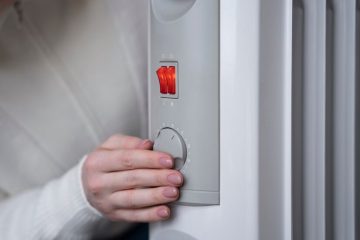Introduction:
Understanding the intricacies of automotive engineering is necessary, mainly regarding the Range Rover Evoque Engine. Uncovering the challenges and providing expert insights into Land Rover’s prominent issues provides important knowledge for enthusiasts and owners alike. Investigating tips and solutions enhances your understanding and maintenance skills, guiding you through the intricacies of the Range Rover Evoque’s mechanical core with a comprehensive guide.
Understanding the Range Rover Evoque Engine:
The Range Rover Evoque is equipped with a variety of engines, designed to maintain the perfect balance between power and fuel efficiency. Among them are the most incredible 2.0-liter turbocharged four-cylinder Ingenium engines, available in petrol and diesel versions. These Range Rover Evoque Engines are famous for their latest features such as variable valve timing, and turbocharging, which are designed to boost power delivery and fuel efficiency.
Engine Specifications:
- Petrol Engines: The 2.0-liter Si4 Ingenium engine generates power outputs ranging from 237 to 296 horsepower, with torque figures reaching up to 400 Nm. This engine guarantees robust performance and quick acceleration, making it ideal among driving enthusiasts.
- Diesel Engines: The 2.0-liter Td4 Ingenium engine delivers power outputs from 148 to 237 horsepower, with torque figures peaking at 500 Nm. Well known for their fuel efficiency and strong mid-range power, these engines are perfect for long-distance cruising.
Despite these incredible specifications, various engine-related issues are also there. Understanding these problems is very important for maintaining the vehicle’s performance and longevity.
Common Engine Problems in the Range Rover Evoque:
- Timing Chain Issues:
One of the most shared problems with the Range Rover Evoque’s Ingenium engines is the timing issues. The timing chain is important for synchronizing the engine’s camshaft and crankshaft but can experience excessive wear or stretching over time. Signs of this issue include a rattling noise from the engine bay, specifically during a cold start, and a check engine light showing timing-related faults.
Specialist Tips:
Routine maintenance and timely replacement of the timing chain are important to prevent serious engine damage. If there are any unusual noises from the engine, it is preferable to have it inspected by a professional mechanic immediately.
2. Turbocharger Failure:
Another common complaint among Range Rover Evoque owners is turbocharger failure. The turbocharger boosts the engine’s power by increasing air intake, but it can fail due to oil contamination or insufficient lubrication. Symptoms include a loss of power, too much smoke from the exhaust, and unexpected whistling noise during acceleration.
Specialist Tips:
Make sure regular oil changes with high-quality manufacturer-recommended oil. Keeping the oil system is essential to the longevity of the turbocharger. Also, allowing the engine to be inactive for a minute after driving helps the turbocharger cool down, and extend its life span.
3. Fuel System Problems:
The Range Rover Evoque is famous for its performance and luxury but it can also experience fuel system issues such as clogged fuel injectors and fuel pump failures. These problems often reflect rough idling, poor acceleration, and difficulty starting the engine. In critical cases, the vehicle may enter limp mode to prevent it from more damage.
Specialist Tips:
To keep the Range Rover Evoque running effortlessly, use high-quality fuel and think about fuel-adding cleaner periodically. Routine maintenance of the fuel system components like the fuel filter, can also help prevent these issues.
4. Coolant Leaks:
Often, the cause of coolant leaks faulty water pumps or radiator hoses, which can lead to severe engine overhearing. This overheating may also result in extreme engine damage, such as wrapped cylinder heads and blown head gaskets. Signs of coolant leak include a drop in coolant levels, visible coolant puddles under the vehicle, and an overheating warning light on the dashboard.
Specialist tips:
Regularly monitor the coolant level and examine the engine bay for signs of leaks. Replacing worn hoses and water pumps before they fail can save you from expensive repairs down the road.
Maintenance tips for Range Rover Evoque Owners:
- Regularly Servicing:
Following the manufacturer’s recommended service schedule is important for the health of the Range Rover Evoque Engine. Regular oil changes, filter replacements, and meticulous inspections can help point out potential issues before they turn into major problems.
2. Quality Parts and Fluid:
Using original Land Rover parts and high-quality fluid is necessary for maintaining the Range Rover Engine’s performance and reliability. Although aftermarket parts may be affordable, they often fall short of the stringent quality standards for high-performance engines like those in the Range Rover Evoque.
3. Monitoring Engine Performance:
It’s important to stay alert to any changes in the vehicle’s performance. Inspect promptly
If you notice unusual noises, vibrations, or a drop in power. Early identifying the engine problems can save you from huge and costly repairs in the future.
4. Software Updates:
Land Rover continually releases software updates for the engine management system to boost performance and also tackle any issue. Make sure your vehicle software is up to date, it is the main thing to prevent engine problems and enhance overall efficiency.
Conclusion:
Although the Range Rover Evoque Engine offers a smooth fusion of performance and luxury, it’s important to understand the potential challenges that may arise. Surveillance and proactive maintenance are vital to guaranteeing continued enjoyment of the vehicle. By understanding the common issues specific to the Range Rover Evoque Engine, adhering to the recommended maintenance schedules, and searching for professional assistance when necessary, the owner can effectively reduce risks and extend the longevity of their Range Rover Evoque Engine. For more detailed guidance on maintenance and troubleshooting, consult the local Land Rover dealer or certified service center.




